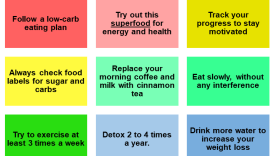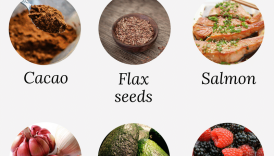Unlocking the Secrets of Collagen for a Healthier Life

What is Collagen?
Collagen is the most abundant protein found in the human body, making up about 30% of its total protein content. This structural protein acts as a vital building block for your skin, bones, muscles, tendons, ligaments, and various connective tissues. Think of collagen as the glue that holds everything together — without it, our bodies would lack the strength and elasticity we often take for granted. Collagen exists in about 16 different types, yet types I, II, and III are the most common in the body. They each serve particular functions, from providing skin support to maintaining cartilage in joints.
- Unlocking the Secrets of Collagen for a Healthier Life
- What is Collagen?
- Importance of Collagen for Health
- Types of Collagen
- Collagen Types in the Body
- Sources of Collagen
- Benefits of Collagen
- Skin Health
- Joint Health
- Collagen-Rich Foods
- Bone Broth
- Fish
- Collagen Supplements
- Types of Collagen Supplements
- How to Choose the Right Supplement
- Collagen in Skincare
- Anti-Aging Properties
- Improving Skin Elasticity
- Exercise and Collagen Production
- Impact of Exercise on Collagen
- Best Exercises for Collagen Synthesis
- Lifestyle Habits for Collagen Production
- Getting Adequate Sleep
- Managing Stress Levels
- Collagen for Hair and Nail Health
- Strengthening Hair
- Improving Nail Quality
- Collagen and Digestive Health
- Gut Health Benefits
- Collagen for Digestive Disorders
Importance of Collagen for Health
Understanding the importance of collagen can transform how you approach health and beauty. Here are some key benefits of this remarkable protein:
- Skin Health: Collagen provides elasticity, ensuring your skin remains youthful and supple.
- Joint Support: It helps maintain cartilage, reducing the risk of joint pain and injuries.
- Bone Strength: Collagen contributes to bone density, providing a sturdy framework that helps prevent fractures.
Incorporating collagen through diet or supplements can promote overall well-being, making it an essential element in maintaining a healthy lifestyle. Now, let’s delve deeper into the types of collagen and their unique roles in our bodies.
Types of Collagen
Collagen Types in the Body
As we dive into the different types of collagen, it’s fascinating to note that our bodies utilize at least 16 known types, each serving specific functions. The most prevalent are:
- Type I: The most abundant, found in skin, tendons, and bones. It provides strength and support.
- Type II: Primarily located in cartilage, this type offers cushioning, especially in joints.
- Type III: Often found alongside Type I, it supports the structure of muscles, blood vessels, and organs.
Understanding these types allows us to appreciate how they contribute to various aspects of health and well-being.
Sources of Collagen
When it comes to sourcing collagen, nature offers a wealth of options. Here are some primary sources to consider:
- Animal-based Sources: Bone broth, fish, and chicken skin are excellent sources, rich in collagen.
- Plant-based Sources: While plants don’t contain collagen, certain nutrients like vitamin C, zinc, and copper help stimulate collagen production. Foods like berries, leafy greens, and nuts can be beneficial.
Incorporating a variety of these collagen sources can enhance your overall intake while promoting healthy skin and joints. Next, let’s explore the myriad benefits that collagen brings to our lives.
Benefits of Collagen
Skin Health
The benefits of collagen are numerous, particularly when it comes to skin health. As we age, our natural collagen production decreases, leading to wrinkles and sagging skin. However, incorporating collagen into your diet or skincare routine can make a noticeable difference. Some key benefits include:
- Improved Elasticity: Collagen helps maintain skin’s firmness and elasticity, giving it that youthful bounce.
- Hydration: Research shows that collagen can contribute to skin hydration, keeping it plump and smooth.
- Reduced Wrinkles: Regular intake of collagen can significantly reduce the appearance of fine lines and wrinkles, leading to a more youthful appearance.
Joint Health
Equally important are the benefits of collagen for joint health. For many, joint pain can become a daily struggle. Luckily, collagen can help mitigate these issues. Here’s how:
- Cartilage Support: Collagen is a vital component of cartilage, the tissue that cushions your joints, and its supplementation can lead to reduced arthritis symptoms.
- Increased Mobility: Many studies have found that collagen supplementation can improve overall joint function and flexibility, making movement easier and more enjoyable.
- Pain Reduction: Regular intake can lead to decreased joint pain, providing relief and enabling a more active lifestyle.
Incorporating collagen into your daily routine, whether through food or supplements, can lead to significant improvements in both skin and joint health. Now, let’s explore the delicious collagen-rich foods that can supercharge our intake.
Collagen-Rich Foods
Bone Broth
When it comes to delicious sources of collagen, bone broth has certainly gained popularity in recent years — and for good reason. Made by simmering animal bones and connective tissues, this nutrient-rich broth contains high levels of collagen that can benefit your overall health. Consider these advantages of bone broth:
- Easy Preparation: It’s simple to make at home! Just throw bones (such as chicken or beef) in a slow cooker with water and vinegar, and let it simmer for hours.
- Versatile: Use it as a base for soups, stews, or even sip it on its own for a cozy drink.
- Rich Flavor: Not only is it nutritious, but bone broth adds a depth of flavor to any dish, making meals extra satisfying.
Fish
Another fantastic source of collagen is fish, particularly fish with skin. Eating fish can provide not just the protein you need, but also an abundance of collagen. Here’s why fish is a powerhouse:
- Omega-3 Fatty Acids: Many fish, like salmon and sardines, are rich in omega-3s that support skin health and reduce inflammation.
- Quick Cooking: Fish cooks quickly, making it a convenient option for busy schedules. A simple pan-sear can transform your dinner in minutes.
- Diverse Options: From baked to grilled, there are countless ways to prepare fish, ensuring it fits into any meal plan perfectly.
Adding these collagen-rich foods to your diet can significantly help in promoting better skin and joint health. Next, let’s explore collagen supplements and how to choose the right one for your needs.
Collagen Supplements
Types of Collagen Supplements
As we continue to embrace the benefits of collagen, supplements present another fruitful avenue to enhance our intake. The most common types of collagen supplements include:
- Hydrolyzed Collagen (Collagen Peptides): This form is broken down into smaller peptides, making it easier for the body to absorb and utilize.
- Type I Collagen: Great for skin health, it’s often derived from bovine sources.
- Type II Collagen: Primarily sourced from chicken, this type is ideal for joint health due to its presence in cartilage.
These varying types offer targeted benefits, allowing you to tailor your supplementation to your specific needs.
How to Choose the Right Supplement
Selecting the right collagen supplement may seem daunting, but here are some tips to simplify the process:
- Assess Your Needs: Determine whether your focus is skin health, joint support, or overall well-being.
- Check the Source: Opt for high-quality products from reputable companies that provide sourcing information and third-party testing.
- Look for Added Nutrients: Some collagen supplements include complementary vitamins (like vitamin C) that enhance absorption and effectiveness.
- Consider Your Preferences: From powders and capsules to drinks, find a form that easily fits into your daily routine.
With these guidelines, you’ll be well-equipped to find a collagen supplement that works best for you. Next, we will delve into the role of collagen in skincare and how it can become your beauty ally.
Collagen in Skincare
Anti-Aging Properties
Integrating collagen into skincare routines can be a game-changer, especially when considering its renowned anti-aging properties. As collagen levels decline with age, the skin can lose its firmness, leading to the formation of fine lines and wrinkles. Here’s what makes collagen a crucial ingredient:
- Plumping Effect: It fills in skin texture, giving it a thicker and more youthful appearance.
- Enhanced Hydration: Collagen can help retain moisture, reducing dryness and creating a more radiant look.
- Visible Results: Regular use of collagen-infused products can lead to reduced signs of aging, leaving skin looking rejuvenated and refreshed.
Improving Skin Elasticity
Beyond its anti-aging benefits, collagen also plays a pivotal role in improving skin elasticity. Here’s how it works:
- Support Structure: Collagen acts as the foundation for skin, ensuring it remains resilient against stretching and pulling.
- Smoother Texture: Increased elasticity leads to fewer creases and smoother skin, providing a more youthful appearance.
- Product Selection: Opt for serums, creams, or masks containing collagen to amplify your skincare regimen.
With these benefits, incorporating collagen into your skincare doesn’t just address the signs of aging — it promotes overall skin health. Now, let’s explore how exercise can also enhance your body’s collagen production for even greater results.
Exercise and Collagen Production
Impact of Exercise on Collagen
Exercise isn’t just vital for maintaining a healthy weight and strong muscles; it also plays a significant role in boosting collagen production. Engaging in regular physical activity increases blood circulation, which helps nourish skin and connective tissues, promoting the synthesis of collagen throughout the body. Here’s how exercise impacts collagen levels:
- Increased Oxygen Flow: Enhanced circulation delivers more oxygen and nutrients to tissues, supporting collagen formation.
- Stimulates Growth Factors: Physical activity can trigger the release of hormones and growth factors that promote collagen synthesis.
- Muscle Activation: Resistance training in particular can help stimulate your body’s fibroblasts, the cells responsible for producing collagen.
Best Exercises for Collagen Synthesis
To harness the benefits of exercise for collagen production, consider incorporating the following activities:
- Strength Training: Lifting weights or using resistance bands can effectively stimulate collagen production in muscles and joints.
- High-Intensity Interval Training (HIIT): Short bursts of intense activity can boost metabolism, supporting overall collagen synthesis.
- Flexibility Exercises: Yoga and Pilates not only enhance flexibility but also promote blood flow, aiding in nutrient distribution for healthy skin.
By blending these exercises into your fitness routine, you can significantly enhance your body’s ability to produce collagen, contributing to youthful skin and stronger joints. Now, let’s explore lifestyle habits that further support collagen production for optimal health.
Lifestyle Habits for Collagen Production
Getting Adequate Sleep
In the quest for optimal collagen production, one often overlooked factor is the power of sleep. Getting adequate and restorative sleep is crucial for skin health and overall wellbeing. During sleep, your body enters a recovery phase, where it can focus on repairing tissues and promoting collagen synthesis. Consider these sleep benefits:
- Cell Repair: Sleep allows your skin cells to regenerate and repair damage from daily environmental stressors.
- Hormone Regulation: Quality sleep helps maintain hormonal balance, crucial for collagen production.
- Reduced Inflammation: A good night’s sleep can decrease inflammation levels, leading to healthier skin.
Aim for 7-9 hours of quality sleep each night to harness these benefits.
Managing Stress Levels
Alongside sleep, managing stress plays a vital role in collagen production. Chronic stress can lead to heightened levels of cortisol, which negatively impacts collagen synthesis and can accelerate aging. Here are some strategies to manage stress:
- Mindfulness Practices: Incorporate practices like meditation or yoga to help reduce stress and promote relaxation.
- Physical Activity: Exercise is not only good for collagen but also an excellent way to relieve stress.
- Social Connections: Spending time with friends and family can boost your mood and help combat daily stressors.
By prioritizing sleep and stress management, you’re setting a solid foundation for supporting your body’s natural collagen production. Next, let’s explore the effects of collagen on hair and nail health, delving into how this incredible protein benefits more than just your skin!
Collagen for Hair and Nail Health
Strengthening Hair
Beyond skin and joints, collagen also plays a significant role in hair health. As one of the building blocks of hair, collagen helps maintain its structure and strength. Here’s how collagen contributes to stronger hair:
- Prevents Breakage: Collagen enhances the elasticity of hair, making it less prone to breakage and damage, which is especially important for long or fragile strands.
- Support for Hair Follicles: The protein nourishes the hair follicles, promoting healthier growth and potentially reducing hair thinning.
- Moisture Retention: By supporting skins and scalp health, collagen helps retain moisture, preventing dryness that can lead to dull, lifeless hair.
Many have noticed positive changes in their hair after incorporating collagen into their diets, often remarking on its increased shine and resilience.
Improving Nail Quality
Just as collagen strengthens hair, it also offers remarkable benefits for nails. Many people struggle with brittle nails that chip and peel easily, but collagen can help fortify them. Here’s how collagen impacts nail health:
- Enhances Strength: Regular collagen intake can lead to stronger nails that resist breakage.
- Promotes Growth: Collagen may help accelerate nail growth, allowing for healthy, long nails.
- Improves Overall Appearance: With increased hydration and strength, nails can become shinier and more resilient.
Incorporating collagen into your diet can lead to noticeable improvements in both hair and nail health. With this holistic approach, you’re ensuring that every part of your beauty routine is supported. Next, let’s examine the relationship between collagen and digestive health, revealing yet another facet of this vital protein.
Collagen and Digestive Health
Gut Health Benefits
Collagen’s benefits stretch far beyond skin and hair health; it also plays a crucial role in digestive health. Supporting a healthy gut lining is vital for overall well-being, and collagen can help strengthen this barrier. Here’s how collagen contributes to gut health:
- Reinforces the Gut Lining: The amino acids in collagen, particularly glycine and glutamine, are essential for repairing and maintaining the intestinal lining, which helps prevent leaky gut syndrome.
- Supports Digestion: By aiding in the production of stomach acid, collagen can enhance nutrient absorption from food, promoting better digestive health.
- Soothing Properties: Collagen has anti-inflammatory effects that can help alleviate discomfort in the digestive tract.
Many individuals who have incorporated collagen into their diets have reported improvements in their overall gut function.
Collagen for Digestive Disorders
For those dealing with digestive disorders, collagen can be a valuable ally. Conditions like irritable bowel syndrome (IBS) and inflammatory bowel diseases (IBD) can greatly benefit from increased collagen intake. Here’s why:
- Reduces Inflammation: Collagen’s anti-inflammatory properties can soothe the gut lining, helping to mitigate symptoms associated with digestive disorders.
- Enhances Healing: The amino acids in collagen facilitate healing processes, which can be beneficial for those with damaged gut linings or IBS.
- Promotes Regularity: Regular collagen consumption may help regulate bowel movements and reduce episodes of bloating or discomfort.
Incorporating collagen into your diet could provide significant relief for digestive issues, showcasing its versatility. Now, let’s wrap up with a summary of how collagen can enhance various aspects of health, promoting a more vibrant and healthy life.





